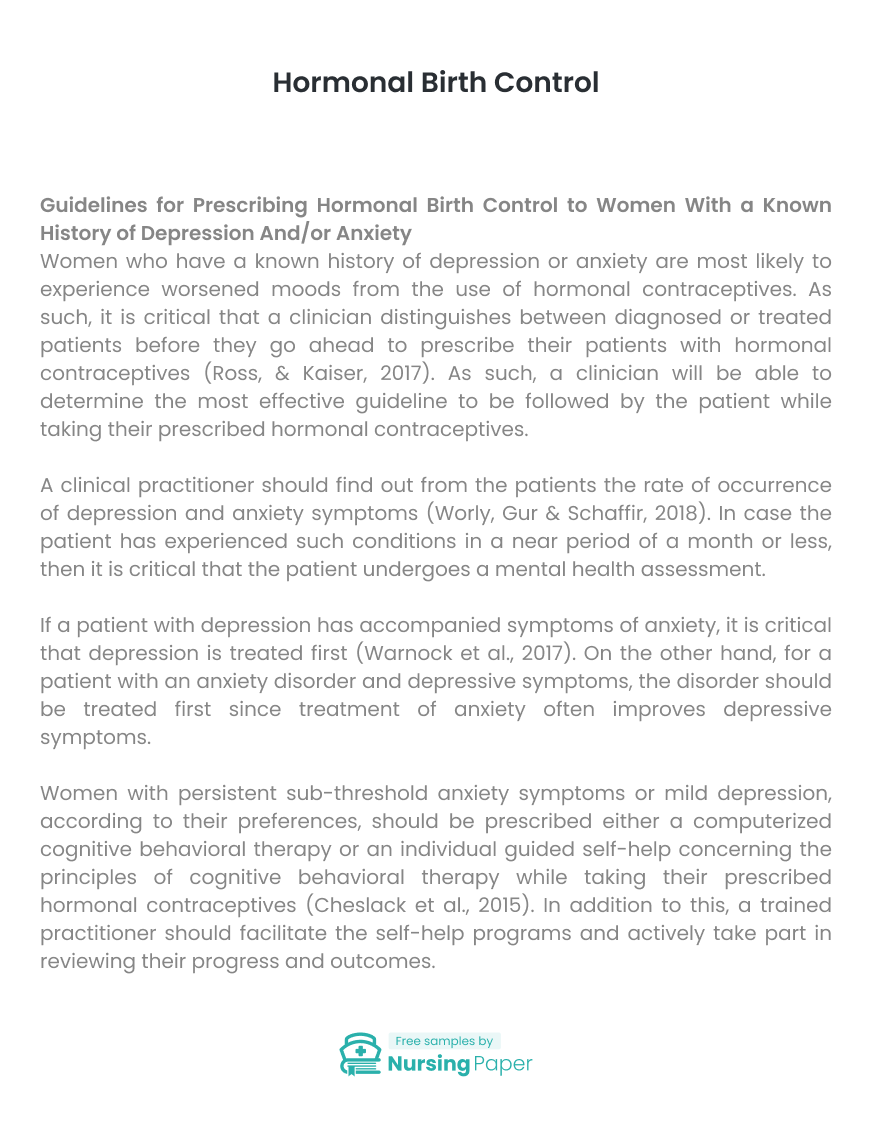1. Cheslack-Postava, K., Keyes, K. M., Lowe, S. R., & Koenen, K. C. (2015). Oral contraceptive use and psychiatric disorders in a nationally representative sample of women. Archives of women’s mental health, 18(1), 103-111.
2. Ross, R. A., & Kaiser, U. B. (2017). Reproductive endocrinology: The emotional cost of contraception. Nature Reviews Endocrinology, 13(1), 7.
3. Warnock, J. K., Cohen, L. J., Blumenthal, H., & Hammond, J. E. (2017). Hormone‐related migraine headaches and mood disorders: Treatment with estrogen stabilization. Pharmacotherapy: The Journal of Human Pharmacology and Drug Therapy, 37(1), 120-128.
4. Worly, B. L., Gur, T. L., & Schaffir, J. (2018). The relationship between progestin hormonal contraception and depression: a systematic review. Contraception.
5. Yang, Y. T., Kozhimannil, K. B., & Snowden, J. M. (2016). Pharmacist-prescribed birth control in Oregon and other states. Jama, 315(15), 1567-1568.

The download will start shortly.



 Subject:
Subject:
 Number of pages: 3
Number of pages: 3